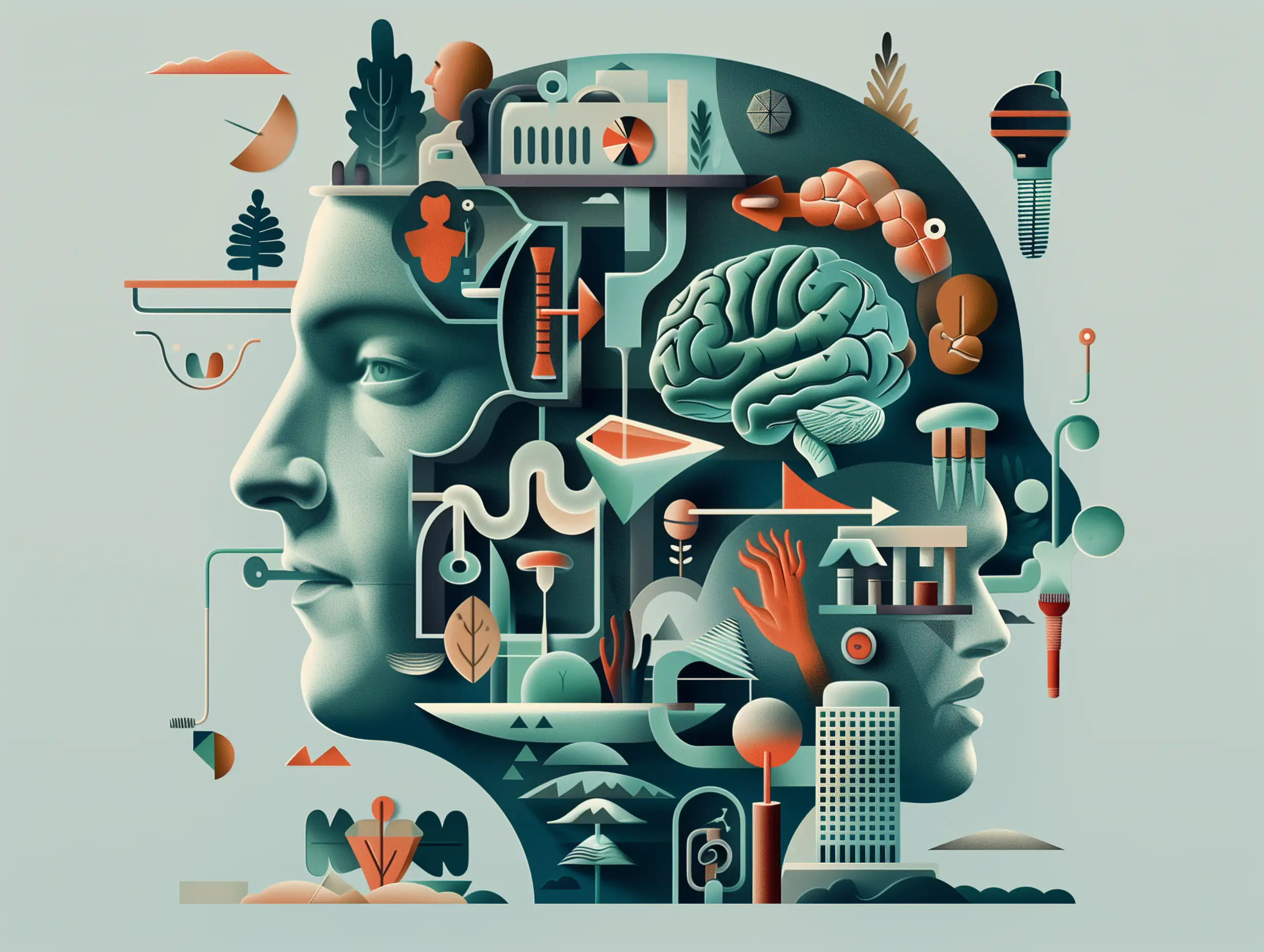-
Beyond Words: Behavioral Expressions in Communication

Introduction In our daily interactions, words are just the tip of the iceberg. Below the surface of spoken language lies a vast ocean of non-verbal cues—gestures, facial expressions, postures, and tones—that play a crucial role in communicating our thoughts and emotions. While we often focus on what is said, how we say it and the…
-
Technological Influences on Behavior: Insights and Implications

Introduction to Technological Influences on Behavior The digital age has ushered in a transformative era, markedly reshaping how we communicate, think, and behave. This profound impact of technology on human behavior is not unprecedented; history is replete with moments where technological advancements significantly altered societal norms and individual behaviors. For instance, the introduction of the…
-
Understanding Human Behavior: An Essential Guide

What is Behavior? Behavior refers to the range of actions and reactions exhibited by humans in response to their environment or stimuli. This encompasses both observable activities, like talking and walking, and internal processes, such as thinking and feeling. The study of human behavior is fundamental in various fields including psychology, sociology, and neuroscience, as…
-
Studying Human Behavior: Methods and Insights

Introduction to Studying Human Behavior Human behavior: that great puzzle we all live with, but can’t quite solve. It’s a bit like assembling a complex jigsaw without the picture on the box as a guide. Psychologists, curious and undaunted, have long sought to understand the “why” behind the “what” we do. Whether it’s someone buying…
-
Human Behavior in Practice: Applications Across Fields

Introduction to Human Behavior in Practice Understanding human behavior isn’t just an academic pursuit confined to labs and lecture halls; it has practical applications that permeate every aspect of our lives. From the way companies cultivate productive workplaces to the strategies educators use to engage students, the insights gleaned from studying human behavior inform and…
-
Theoretical Frameworks in Understanding Human Behavior

Introduction to Theoretical Frameworks Understanding human behavior requires a multi-faceted approach, as it is shaped by complex and interrelated factors. To navigate this complexity, psychologists have developed various theoretical frameworks, each offering distinct perspectives on why we act the way we do. These theories help us understand different aspects of human behavior, from the automatic…
-
Foundations of Human Behavior

Introduction to the Foundations of Human Behavior When we talk about “behavior,” we’re referring to the way individuals act and react in various situations, influenced by internal and external factors that range from biological systems to cultural norms. This complex tapestry of actions encompasses everything from automatic physiological responses to deliberate, conscious choices. Understanding human…
-
How to Measure the 4 Types of Attention – with Biosensors

Discover the importance of measuring the four types of attention—sustained, selective, alternating, and divided—with biosensors. This comprehensive guide explores how each attention type impacts daily activities and cognitive processes, enhancing everything from educational success to automotive design. Learn about the tools and methods used to assess attention, including EEG, eye tracking, and more, offering a…
-
Enhancing Safety in Road-Based Transportation through Human Factors R&D

The rigorous demands on truck drivers lead to significant fatigue, thus raising the risk of accidents. Advanced driver monitoring systems are now key to boosting road safety by monitoring and mitigating these risks.
-
Roles of Independent and Dependent Variables in Research

Explore the essential roles of independent and dependent variables in research. This guide delves into their definitions, significance in experiments, and their critical relationship. Learn how these variables are the foundation of research design, influencing hypothesis testing, theory development, and statistical analysis, empowering researchers to understand and predict outcomes of research studies.

